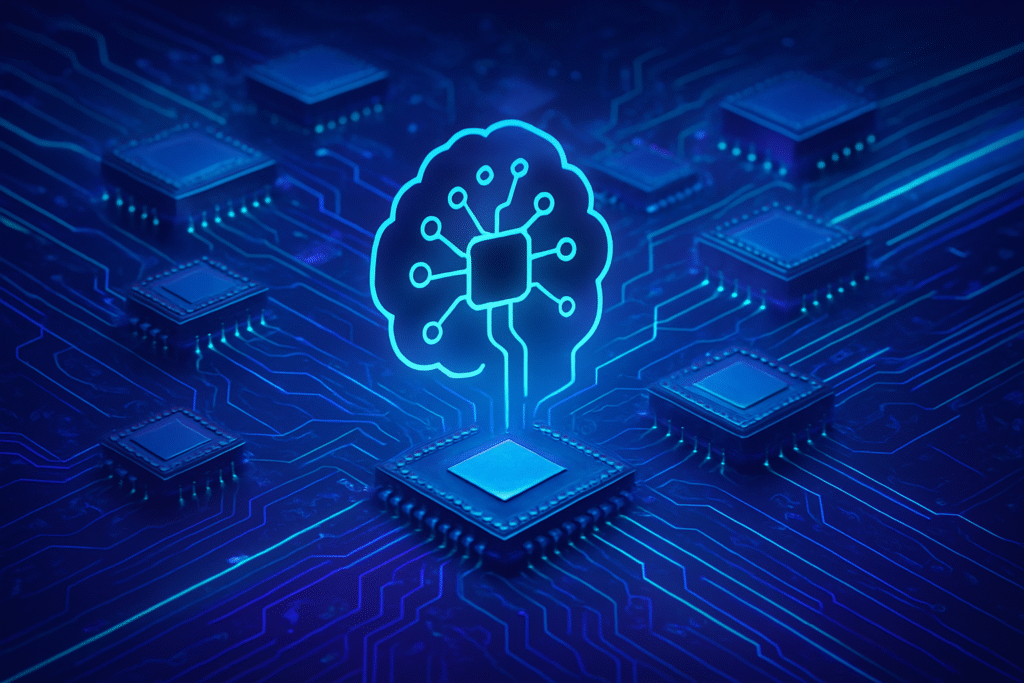
The global semiconductor industry is in the throes of an unprecedented consolidation wave, fueled by the explosive demand for Artificial Intelligence (AI) and high-performance computing (HPC) chips. As of late 2025, a series of strategic mergers and acquisitions are fundamentally reshaping the market, with chipmakers aggressively pursuing specialized technologies and integrated solutions to power the next generation of AI innovation. This M&A supercycle reflects a critical pivot point for the tech industry, where the ability to design, manufacture, and integrate advanced silicon is paramount for AI leadership. Companies are no longer just seeking scale; they are strategically acquiring capabilities that enable "full-stack" AI solutions, from chip design and manufacturing to software and system integration, all to meet the escalating computational demands of modern AI models.
Strategic Realignment in the Silicon Ecosystem
The past two to three years have witnessed a flurry of high-stakes deals illustrating a profound shift in business strategy within the semiconductor sector. One of the most significant was AMD's (NASDAQ: AMD) acquisition of Xilinx in 2022 for $49 billion, which propelled AMD into a leadership position in adaptive computing. Integrating Xilinx's Field-Programmable Gate Arrays (FPGAs) and adaptive SoCs significantly bolstered AMD's offerings for data centers, automotive, and telecommunications, providing flexible, high-performance computing solutions critical for evolving AI workloads. More recently, in March 2025, AMD further solidified its data center AI accelerator market position by acquiring ZT Systems for $4.9 billion, integrating expertise in building and scaling large-scale computing infrastructure for hyperscale companies.
Another notable move came from Broadcom (NASDAQ: AVGO), which acquired VMware in 2023 for $61 billion. While VMware is primarily a software company, this acquisition by a leading semiconductor firm underscores a broader trend of hardware-software convergence. Broadcom's foray into cloud computing and data center software reflects the increasing necessity for chipmakers to offer integrated solutions, extending their influence beyond traditional hardware components. Similarly, Synopsys's (NASDAQ: SNPS) monumental $35 billion acquisition of Ansys in January 2024 aimed to merge Ansys's advanced simulation and analysis capabilities with Synopsys's chip design software, a crucial step for optimizing the performance and efficiency of complex AI chips. In February 2025, NXP Semiconductors (NASDAQ: NXPI) acquired Kinara.ai for $307 million, gaining access to deep-tech AI processors to expand its global footprint and enhance its AI capabilities.
These strategic maneuvers are driven by several core imperatives. The insatiable demand for AI and HPC requires highly specialized semiconductors capable of handling massive, parallel computations. Companies are acquiring niche firms to gain access to cutting-edge technologies like FPGAs, dedicated AI processors, advanced simulation software, and energy-efficient power management solutions. This trend towards "full-stack" solutions and vertical integration allows chipmakers to offer comprehensive, optimized platforms that combine hardware, software, and AI development capabilities, enhancing efficiency and performance from design to deployment. Furthermore, the escalating energy demands of AI workloads are making energy efficiency a paramount concern, prompting investments in or acquisitions of technologies that promote sustainable and efficient processing.
Reshaping the AI Competitive Landscape
This wave of semiconductor consolidation has profound implications for AI companies, tech giants, and startups alike. Companies like AMD and Nvidia (NASDAQ: NVDA), through strategic acquisitions and organic growth, are aggressively expanding their ecosystems to offer end-to-end AI solutions. AMD's integration of Xilinx and ZT Systems, for instance, positions it as a formidable competitor to Nvidia's established dominance in the AI accelerator market, especially in data centers and hyperscale environments. This intensified rivalry is fostering accelerated innovation, particularly in specialized AI chips, advanced packaging technologies like HBM (High Bandwidth Memory), and novel memory solutions crucial for the immense demands of large language models (LLMs) and complex AI workloads.
Tech giants, often both consumers and developers of AI, stand to benefit from the enhanced capabilities and more integrated solutions offered by consolidated semiconductor players. However, they also face potential disruptions in their supply chains or a reduction in supplier diversity. Startups, particularly those focused on niche AI hardware or software, may find themselves attractive acquisition targets for larger entities seeking to quickly gain specific technological expertise or market share. Conversely, the increasing market power of a few consolidated giants could make it harder for smaller players to compete, potentially stifling innovation if not managed carefully. The shift towards integrated hardware-software platforms means that companies offering holistic AI solutions will gain significant strategic advantages, influencing market positioning and potentially disrupting existing products or services that rely on fragmented component sourcing.
Broader Implications for the AI Ecosystem
The consolidation within the semiconductor industry fits squarely into the broader AI landscape as a critical enabler and accelerant. It reflects the understanding that advanced AI is fundamentally bottlenecked by underlying silicon capabilities. By consolidating, companies aim to overcome these bottlenecks, accelerate the development of next-generation AI, and secure crucial supply chains amidst geopolitical tensions. This trend is reminiscent of past industry milestones, such as the rise of integrated circuit manufacturing or the PC revolution, where foundational hardware shifts enabled entirely new technological paradigms.
However, this consolidation also raises potential concerns. Increased market dominance by a few large players could lead to reduced competition, potentially impacting pricing, innovation pace, and the availability of diverse chip architectures. Regulatory bodies worldwide are already scrutinizing these large-scale mergers, particularly regarding potential monopolies and cross-border technology transfers, which can delay or even block significant transactions. The immense power requirements of AI, coupled with the drive for energy-efficient chips, also highlight a growing challenge for sustainability. While consolidation can lead to more optimized designs, the overall energy footprint of AI continues to expand, necessitating significant investments in energy infrastructure and continued focus on green computing.
The Road Ahead: Future Developments and Challenges
Looking ahead, the semiconductor industry is poised for continued strategic M&A activity, driven by the relentless advancement of AI. Experts predict a continued focus on acquiring companies with expertise in specialized AI accelerators, neuromorphic computing, quantum computing components, and advanced packaging technologies that enable higher performance and lower power consumption. We can expect to see more fully integrated AI platforms emerging, offering turnkey solutions for various applications, from edge AI devices to hyperscale cloud infrastructure.
Potential applications on the horizon include highly optimized chips for personalized AI, autonomous systems that can perform complex reasoning on-device, and next-generation data centers capable of supporting exascale AI training. Challenges remain, including the staggering costs of R&D, the increasing complexity of chip design, and the ongoing need to navigate geopolitical uncertainties that affect global supply chains. What experts predict will happen next is a continued convergence of hardware and software, with AI becoming increasingly embedded at every layer of the computing stack, demanding even more sophisticated and integrated silicon solutions.
A New Era for AI-Powered Silicon
In summary, the current wave of mergers, acquisitions, and consolidation in the semiconductor industry represents a pivotal moment in AI history. It underscores the critical role of specialized, high-performance silicon in unlocking the full potential of artificial intelligence. Key takeaways include the aggressive pursuit of "full-stack" AI solutions, the intensified rivalry among tech giants, and the strategic importance of energy efficiency in chip design. This consolidation is not merely about market share; it's about acquiring the fundamental building blocks for an AI-driven future.
As we move into the coming weeks and months, it will be crucial to watch how these newly formed entities integrate their technologies, whether regulatory bodies intensify their scrutiny, and how the innovation fostered by this consolidation translates into tangible breakthroughs for AI applications. The long-term impact will likely be a more vertically integrated and specialized semiconductor industry, better equipped to meet the ever-growing demands of AI, but also one that requires careful attention to competition and ethical development.
This content is intended for informational purposes only and represents analysis of current AI developments.
TokenRing AI delivers enterprise-grade solutions for multi-agent AI workflow orchestration, AI-powered development tools, and seamless remote collaboration platforms. For more information, visit https://www.tokenring.ai/.





